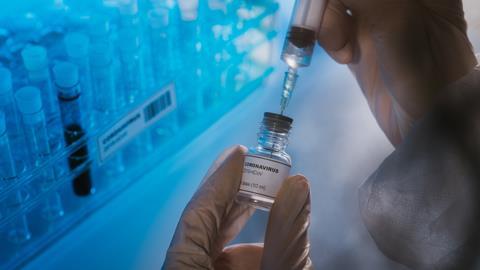In a landmark inquest ruling on the deaths of two nurses, a coroner cited for the first time the link between Covid and industrial disease. But lawyers are ruling out a flood of civil claims
The deaths of two nurses at the onset of the Covid-19 pandemic have been recorded as industrial disease – the first known case in which the link between the disease and the workplace has been formally recognised.
But lawyers warn that the landmark nature of the verdicts is not necessarily going to open the floodgates to more such verdicts – and that the prospect of bringing successful civil claims on behalf of victims who contracted the virus at work is still a distant one.
In a ruling last week, Graeme Hughes, the senior coroner for South Wales Central, said it was ‘more likely than not’ that Gareth Roberts and Dominga David were exposed to the Covid-19 virus while at work. He ruled that they died of industrial disease.
Hughes, sitting at Pontypridd, said: ‘On the balance of probabilities, exposure more likely happened at work and infection happened as a result of that exposure.’
Roberts, who worked at University Hospital of Wales in Cardiff, had contracted the virus and died in the early stages of the pandemic. His inquest had explored national guidance that was in force at the time in terms of infection prevention and control, cohorting of Covid-19 patients, PPE and risk assessments of employees.
The inquest heard that his family had concerns about whether he was properly risk-assessed, given that he was a 65-year-old man with Type 2 diabetes and therefore high-risk. There were also questions about the effectiveness of the protective equipment he was supplied with.
David, 63, was in good health and died from complications arising from Covid-19, the inquest heard.
Doughty Street’s Matthew Turner, who was instructed by the Royal College of Nursing to represent the family of Roberts, said this was a ‘hugely significant inquest’ which resulted in the first case in which Covid-19 contracted at the workplace was recognised as an industrial disease.
‘There were extensive legal submissions on the meaning of “industrial disease” and whether this was open to the coroner as a short-form conclusion,’ he said. ‘The family submitted that this was an available and appropriate conclusion, whereas the health board argued that such a ruling would be wrong in law.’
The board in both cases made the case that the deaths were from natural causes.
The question now is whether the verdicts will be first of many, and perhaps whether lawyers might be emboldened to bring civil cases on behalf of workers exposed to the virus.
The Health and Safety Executive estimates that 123,000 workers suffering from Covid-19 in 2021/22 believe they contracted it from exposure at work. A further 585,000 workers suffered from a work-related illness caused or made worse by the effects of coronavirus.
Ross Whalley, a partner with claimant firm Leigh Day, said the coroner’s ruling may have a limited impact as the issues of liability and causation are still such high hurdles.
‘Defendants will raise the issue of when transmission happened and a lot will depend on what was said at the time in terms of guidance,’ said Whalley.
Anyone running a civil claim will need to prove either that public health guidance at the time was not followed, or – perhaps even more of a challenge – whether that guidance was itself negligent. Health chiefs are likely to argue that any claims of negligence rely on hindsight.
The inquest rulings last week will help that case to be made but might ultimately be more significant for legal academics than practitioners.
Turner stressed that the rulings were fact-specific and should not be regarded as opening the floodgates to civil claims.
‘Covid workplace claims are going to require some sort of failure and negligence such as not providing the right PPE or not following the guidance at the time.’





































No comments yet